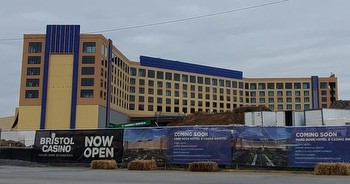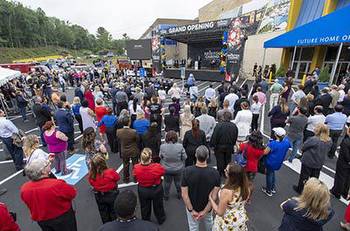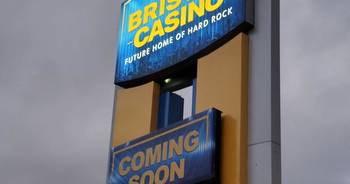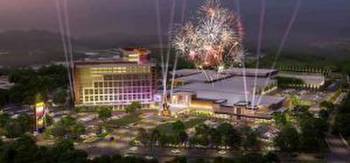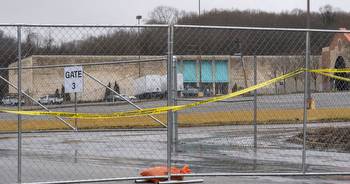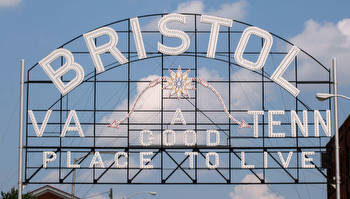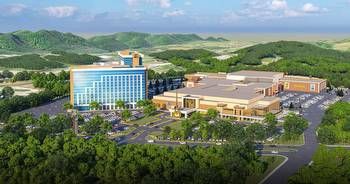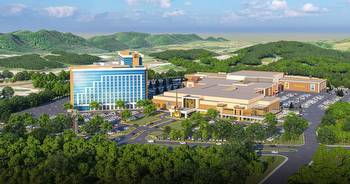Bristol Mall demolition and casino construction work to begin soon

BRISTOL, Va. — Nearly 13 months after city voters approved allowing a casino to operate in Bristol, Virginia, its first tangible steps are occurring.
On Nov. 3, 2020, Bristol became one of four Virginia cities to approve casino gaming under new state legislation. Recently, the city approved the initial plans for changes to the former Bristol Mall on Gate City Highway to accommodate gaming.
“We have submitted a demolition plan to the city,” the Bristol casino group said in a written statement to the Bristol Herald Courier. “This plan relates to preliminary site evaluation work at the mall that we need to complete before finalizing our design for the temporary casino.”
City Manager Randy Eads confirmed the plan was submitted and approved but said specific details that would “identify specific trade secrets or other information” aren’t accessible to the public under terms of state law.
The planned $400 million casino resort is expected to employ 1,000-2,000 people once fully developed and include a casino with 1,500 slots and 55 table games initially, then expand to 2,700 slots and 100 table games, according to the developers. The former mall campus is expected to include a 300-room hotel with the capability to expand, seven restaurants, four bars, a 3,200-seat live performance venue, outdoor entertainment venue with space for 20,000, retail space, convention space and other attractions.
This was expected be a time-consuming process because the Virginia Lottery Board had to hire staff, develop and implement regulations and all parties involved — including vendors and all gaming employees — will have to pass extensive background checks.
Developers Jim McGlothlin and Clyde Stacy have said from the beginning their intent was to establish a temporary gaming facility first and begin hiring as soon as possible — prior to opening the full casino. Such an operation can’t occur, however, until the Lottery Board approves their gaming license.
“We continue to work closely with the Virginia Lottery on next steps for construction of the temporary gaming facility and planning for the permanent one,” according to the statement. “We appreciate the ongoing cooperation and assistance from local and state officials for all necessary permitting and licensing requirements.”
Lottery officials have approved the first five casino vendor applications — all for firms that will work for Hard Rock Bristol LLC.
They include Conspectus Inc., a New Jersey-based firm billing itself as the nation’s largest independent specifications consulting firm, and DeSimone Consulting Engineering, which will provide structural engineering, consulting, forensic services and risk management.
Based in New York City, with offices worldwide, DeSimone’s work includes the Hard Rock Hotel Casino in Gary, Indiana, and the expansion of the Seminole Hard Rock Hollywood Hotel & Casino in Florida.
Other newly approved vendors for the Bristol project include Polisano Construction Services of Absecon, New Jersey; Sykes O’Connor Salerno Hazevah Architects, with offices in Atlantic City, New Jersey, and Philadelphia, for architectural and interior services; and TN Ward Co., of Atlantic City and Ardmore, Pennsylvania, for construction management services.
At the Lottery Board’s meeting last month, Lottery Deputy Director of Gaming Compliance Gina Smith told the board her office has received applications for facility operator, principal entity, manufacturer and major and minor vendors, and she anticipates receiving “thousands of applications” in the coming months.
All reviews are occurring under the state’s “emergency regulations” developed during the past year while proposed permanent regulations are taking shape.
The board’s proposed permanent casino gaming regulations have been reviewed by the governor’s office and are currently undergoing a 60-day public review that ends Dec. 24. The lottery board could potentially vote on those regulations at its January 2022 meeting, and approval there would trigger another gubernatorial review before becoming final. The regulations must be in place by October 2022.








